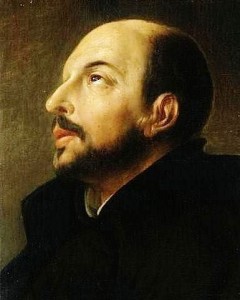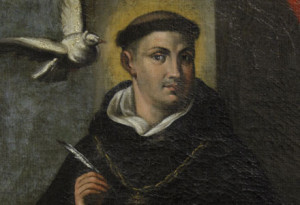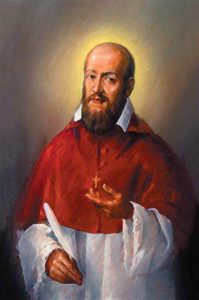Podcast: Play in new window | Download (Duration: 28:12 — 19.4MB) | Embed
Subscribe: Apple Podcasts | Spotify | Amazon Music | Android | Pandora | iHeartRadio | JioSaavn | Podchaser | Gaana | Podcast Index | Email | TuneIn | Deezer | Anghami | RSS | More
 God’s Presence in Silence – Meditation and Contemplation with Fr. Timothy Gallagher
God’s Presence in Silence – Meditation and Contemplation with Fr. Timothy Gallagher
Fr. Timothy Gallagher explores the distinction between meditation and contemplation in the Ignatian tradition, and how both forms of prayer deepen one’s relationship with God. Meditation involves reflecting on Scripture’s meaning, while contemplation uses the imagination to place oneself within a Gospel scene. Imaginative prayer is not mere fantasy but a method deeply rooted in Catholic tradition, practiced by saints like St. Ignatius, St. Teresa of Avila, and St. Francis de Sales. Scripture itself, being rich in narrative and imagery, invites this form of engagement. The saving power of Christ’s life is not confined to the past but remains available through prayer, liturgy, and personal devotion.
He also introduces the concept of the colloquy, a key Ignatian practice in which the soul naturally shifts from contemplation into a personal conversation with God, Mary, or the saints.
Discerning Hearts Reflection Questions
- Authenticity in Prayer: How can you discern whether your prayer experience, especially in contemplation, is truly an encounter with God rather than just personal imagination?
- The Tradition of Imaginative Prayer: What insights from the saints and Scripture itself help you trust that imaginative contemplation is a valid and fruitful way to pray?
- Encountering the Living Christ: Since the saving grace of Christ’s life is always accessible, how can you more intentionally enter into His presence through meditation and contemplation?
- The Role of the Holy Spirit: How do you recognize the guidance of the Holy Spirit in your prayer, especially when reflecting on Scripture or engaging in imaginative contemplation?
- Disposing Yourself for Grace: What practical steps can you take to create the openness necessary to receive the grace God wants to give you in prayer?
- Transitioning into Prayer: How can you better prepare your heart before beginning a time of meditation or contemplation to foster a deeper encounter with God?
- The Colloquy as Conversation with God: When has your prayer naturally shifted from reflection into direct conversation with God, and how did that change your experience of His presence?
- Devotions as Contemplative Prayer: How can practices like the Rosary or the Stations of the Cross become more of a personal encounter with Christ rather than a routine obligation?
- Remaining Where Grace is Found: Have you ever experienced a moment in prayer where you felt called to stay with a particular thought, image, or feeling? How did you respond?
- Carrying Prayer into Daily Life: How can you take what you receive in prayer—whether in meditation, contemplation, or colloquy—and allow it to shape your daily actions and decisions?
Father Timothy M. Gallagher, O.M.V., was ordained in 1979 as a member of the Oblates of the Virgin Mary, a religious community dedicated to retreats and spiritual formation according to the Spiritual Exercises of St. Ignatius. Fr. Gallagher is featured on the EWTN series “Living the Discerning Life: The Spiritual Teachings of St. Ignatius of Loyola.” For more information on how to obtain copies of Fr. Gallaghers’s various books and audio, which are available for purchase, please visit his website: frtimothygallagher.org





 St. Francis de Sales Novena – Day 5
St. Francis de Sales Novena – Day 5

